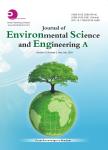Economic Competition for High Profits from Antarctic Living Resources in Their Protection Area
Economic Competition for High Profits from Antarctic Living Resources in Their Protection Area作者机构:Department of Oceanography and Geography University of Gdahsk Gdynia 81378 Poland
出 版 物:《Journal of Environmental Science and Engineering(A)》 (环境科学与工程(A))
年 卷 期:2016年第5卷第1期
页 面:1-58页
学科分类:12[管理学] 120202[管理学-企业管理(含:财务管理、市场营销、人力资源管理)] 1202[管理学-工商管理] 0907[农学-林学] 090705[农学-野生动植物保护与利用] 08[工学] 09[农学] 0834[工学-风景园林学(可授工学、农学学位)]
主 题:Maximum profits from resources fish biomass age of icefish Antarctic fish krill.
摘 要:Since 1790, Antarctic living resources were becoming subjects of competition among the exploiters to be first in obtaining the maximum profit from them. This led to subsequent extinction of valuable species from fur seals and next penguins, large through small whales, industrial demersal fish, further to pelagic species and now toothfish, crabs and krill. Catch proportions of their numerous and biomass decrease. The biomass of South Georgia Icefish estimated for 40 years in spide of decreasing trend has one of the largest components-the oscillations with periods of 3 years or 4 years. Their models explain large biomass fluctuations in the years 1975 to 1981 with amplitudes ±15 × 10^3 tonnes around average 20 ×10^3 tonnes and further decline up to 2005 season with oscillation ±4 ×10^3 tonnes around average 5 × 10^3 tonnes. For future season, 2016 model predicts a little increase of the biomass oscillation at level of 8 × 10^3 tonnes with reduced amplitude 2 × 10^3 tonnes. Slowly increase density of adult fish was also reported for target similar and close related mackerel icefish. Additional references for biomass levels help reduce the risk of further depletion biomass of Pseudochaenichthys georgianus which already declined to 75%. As global warming promote phytoplankton growth, replacing krill fishery by algae farms can save unique Antarctic heritages.



